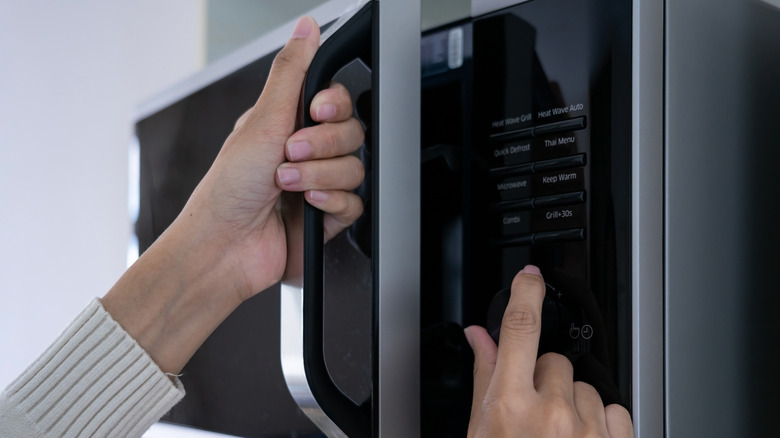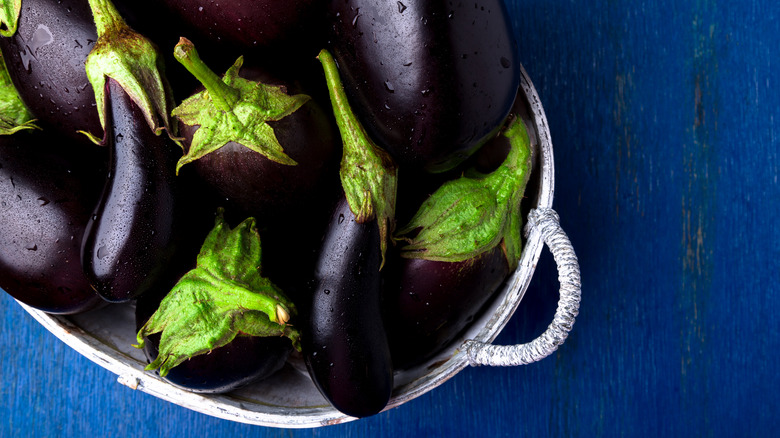The Easiest Eggplant Cooking Hack You'll Ever Try
It's the secret behind a creamy baba ganoush, a salty caponata, or a decadent moussaka. It's a key player in a good ratatouille or a classic Pasta alla Norma. And, of course, it's the star of the warm, comforting eggplant parmesan. Mediterranean, Middle Eastern, Italian, Thai — eggplant is a versatile, hearty food that spans many cuisines and takes on many forms.
Still, it's also a polarizing food — people either love it or they hate it. This vegetable-that's-technically-a-fruit tends to get a bad rap from folks who aren't fans of the nightshade's unique texture or signature bitterness. But for the rest of us, there are endless reasons to love the shiny, deep-dark-purple beauty that is the eggplant. It's nutrient-dense, it's high in antioxidants, and it's a high-fiber food (per Healthline). Oh, and it's delicious.
But knowing how to cook eggplant correctly is crucial. And that's where this easy hack comes in.
Skip the salt and head to the microwave
A common practice is to cut and salt your eggplant before you cook it to extract some moisture out of it, but this process takes a while to work. If you don't have the time for the salt-and-sit (or if you're just really hungry), your microwave can help speed up the process.
Cook's Illustrated suggests microwaving your eggplant before you cook it. The microwave helps remove moisture from the vegetable faster, though the outlet still suggests salting the eggplant before microwaving it. For best results, microwave the eggplant in a single layer on a paper-towel-lined plate for five minutes on high power. The Los Angeles Times, too, swears by using the microwave to soften eggplant.
In just a few minutes, your eggplant will be in its optimal form for however you prefer to cook it, whether that's frying, baking, grilling, or mashing.
Why is salting or microwaving eggplants necessary?
Because eggplants are built like sponges, they'll sop up whatever you cook them in. To keep them from soaking up too much oil, resulting in a final product that's too greasy or too mushy, it's best to release the excess moisture from eggplants before you cook them.
Food Crumbles dives into the science behind it: Eggplants are light for their size because they're made up of lots of tiny air pockets, and the key to cooking them well is to break this texture down. "Once the structure has started to break down, the cells in an eggplant will break down and separate from one another," the outlet explains. "This allows the air to escape and the solids in an eggplant to come together."
So before you whip up your next favorite eggplant recipe, you may want to make the microwave your first stop.


